On January 8, 2022, in order to promote the transformation and future development of medical imaging AI research results, Suzhou University joined hands with Big Vision Medical Technology to hold the first Suzhou “International Forum on Ophthalmic Artificial Intelligence.”
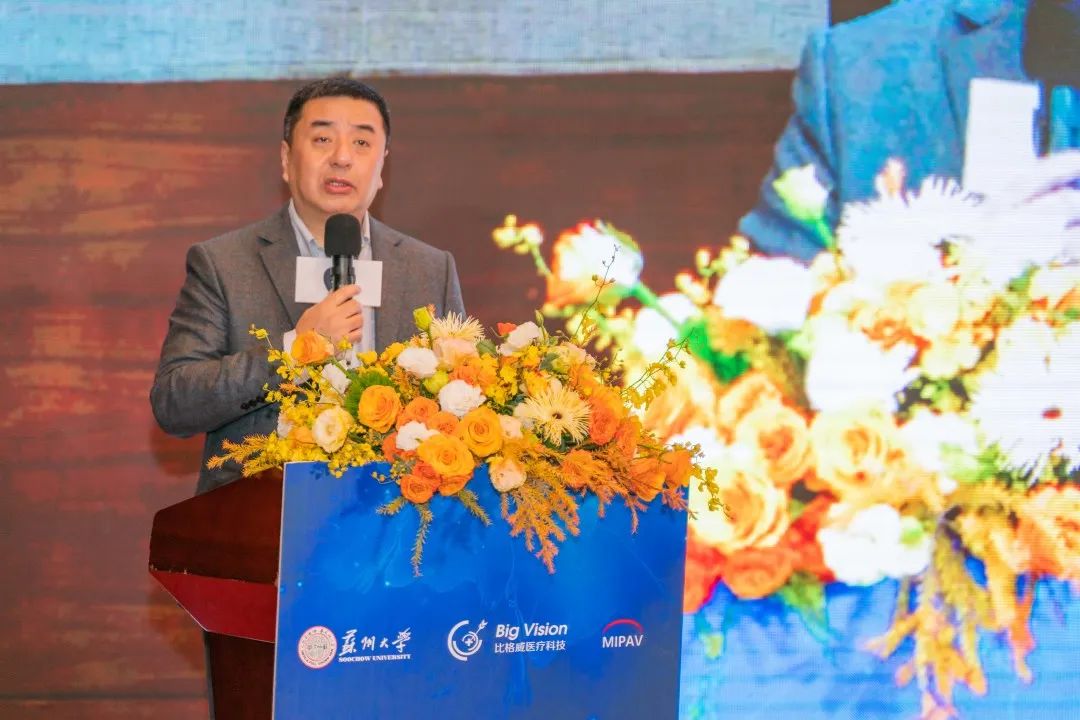

The chairman of the conference
This forum is conducted in both offline and online livestreaming formats, with Professor Xu Xun, the director of the National Clinical Research Center for Eye Diseases, the vice chairman of the Ophthalmology Branch of the Chinese Medical Association, the leader of the Retinopathy Group and the director of the Department of Ophthalmology at Shanghai First People’s Hospital, and Professor Chen Xinjian, a distinguished professor at Suzhou University and founder of Suzhou Big Vision Medical Technology Co., Ltd., serving as co-chairs of the conference. The forum is divided into four sections, with Professor Xu Xun, Professor Chen Xinjian, Professor Chen Haoyu from the Joint Shantou International Eye Center of Shantou University and the Chinese University of Hong Kong, Professor Yan Wentao from the Eye and Vision Science Institute at Wenzhou Medical University, Professor Zhang Xiaofeng from the Dushu Lake Hospital Affiliated to Suzhou University, and Professor Feng Kehong from the Children’s Hospital Affiliated to Suzhou University serving as moderators for each section.

This forum has invited renowned scholars, ophthalmologists, and relevant investment institutions in the AI field from both domestic and international arenas. They discuss hot topics such as “New Technology and Progress in Medical Image Al” through various theme-based academic reports to jointly interpret and explore the latest trends and innovative developments of AI technology in ophthalmology. This aims to accelerate the application of artificial intelligence technology in the field of ophthalmic medicine. Although the offline audience was limited due to the impact of the epidemic, the online streaming attracted a large number of interested eye doctors and AI scholars. The number of viewers exceeded 11,000, which indicates a high level of attention paid by everyone to the current development and application of ophthalmic artificial intelligence technology.
Two international scholars were invited as keynote speakers for this international summit forum, Yali Jia, Ph.D. from Oregon Health & Science University is a famous inventor of the SSADA (split-spectrum amplitude-decorrelation angiography) algorithm. Her report named “Artificial Intelligence in OCT angiography” discussed in-depth the use of artificial intelligence in OCTA technology. Another invited scholar, Yalin Zheng, Ph.D. from The University of Liverpool, is one of the internationally recognized experts engaged in AI of eye diseases. In his report titled “Ophthalmic image technology in AI era: from bench,” he comprehensively introduced the latest advances and trends of AI in ophthalmic imaging technology. In the AI era, ophthalmic imaging and AI are closely integrated from noise reduction and enhancement to lesion recognition, segmentation, and assisting diagnosis.
Wonderful reports from international scholars.
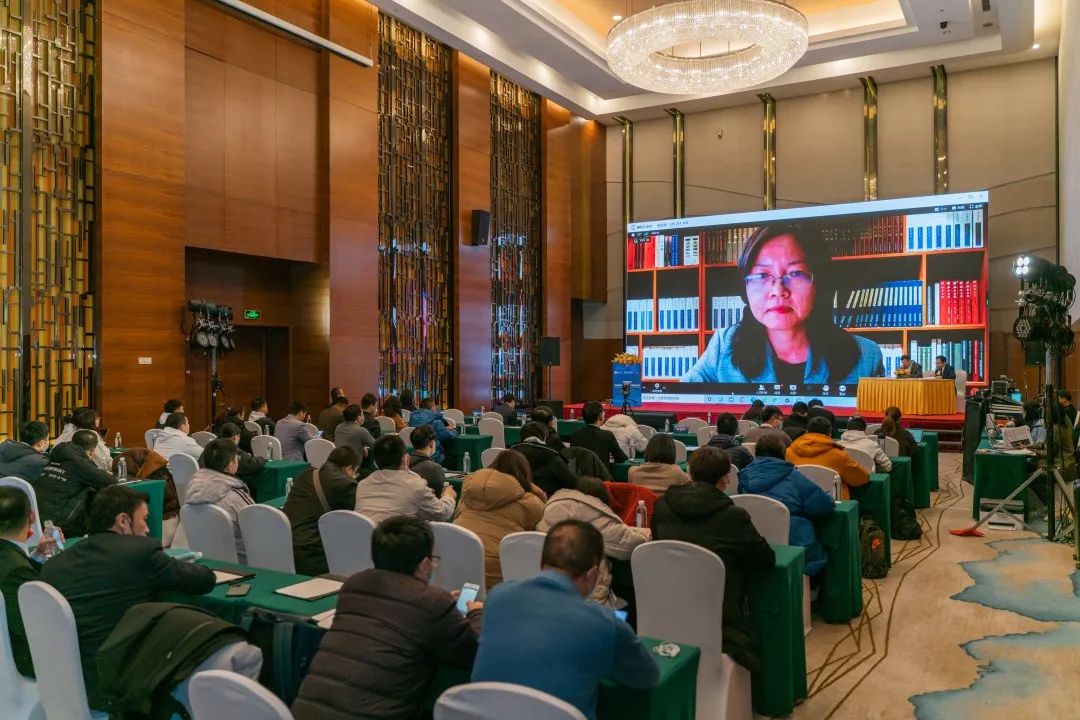

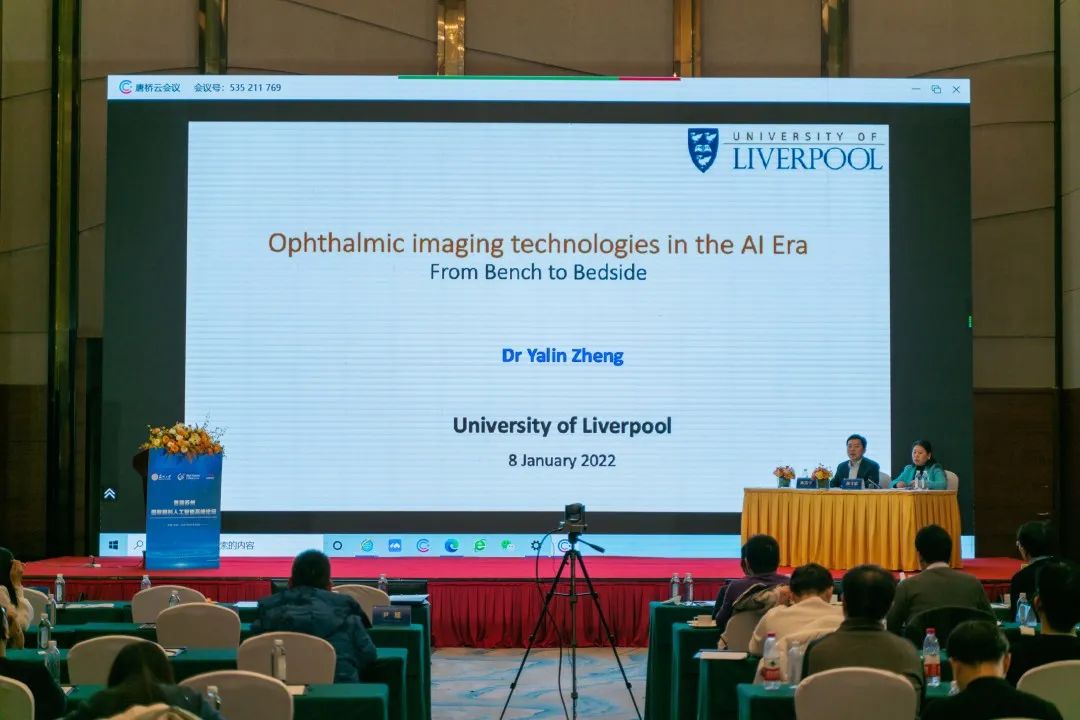

With the deepening of understanding of the mechanism of myopia, the role of the choroid in the development of myopia in young people has become a research hotspot in recent years. Professor Xu Xun’s report “Early Fundus Changes in Children and Adolescents with Myopia” revealed various manifestations of the choroid and its relationship with the development of myopia through advanced artificial intelligence technology. Professor Chen Haoyu from the Joint Shantou International Eye Center of Shantou University and the Chinese University of Hong Kong also presented the latest research results on choroidal segmentation and thickness measurement using convolutional neural networks.

Professor Tang Shibo, the chief hospital executive of the Aier Eye Hospital group, presented a report on “The Application of New Generation Imaging Technology in the Diagnosis and Treatment of Fundus Diseases”. He shared his thoughts and outlook on the popular concept of the “Metaverse”, which also sparked lively discussion in the online forum. This forum demonstrated that various advanced artificial intelligence technologies have been widely applied in ophthalmology diagnosis and treatment, including Professor Chen Youxin, director of the Department of Ophthalmology at Peking Union Medical College Hospital and director of the Key Laboratory of Ophthalmology, Chinese Academy of Medical Sciences, who achieved good performance in predicting the treatment of AMD and RVO using Generative Adversarial Networks (GAN). Professors from other institutions such as Dai Hong from Peking University School of Medicine, Song Zongming from Henan Provincial People’s Hospital Eye Center, Zhang Ming from West China Hospital of Sichuan University, Li Suyan from Xuzhou First People’s Hospital, Yan Hong from Shaanxi Provincial People’s Hospital, Ma Xiang from The First Affiliated Hospital of Dalian Medical University, Lu Peirong from Suzhou University Affiliated First Hospital Eye Center, Fan Ying from Shanghai First People’s Hospital, Zhang Xiaofeng from Suzhou University Affiliated Ophthalmic Optic Hospital, and Yu Honghua from Guangdong Provincial People’s Hospital shared their research achievements in applying deep learning to fields such as diabetic retinopathy, anterior segment, premature infant retinopathy, macular diseases, high myopia, and keratoconus.

From the retinal to the ocular surface, from ophthalmic diseases to vision care
ophthalmology is embracing AI comprehensively
The combination of hardware and software is an important trend in the development of AI systems. Professor Yuan Jin from the Zhongshan Ophthalmic Center of Sun Yat-sen University presented a report on “Research and Application of Intelligent Eye Microvascular System”, while Professor Huang Guofu from the First Hospital of Nanchang City in Jiangxi Province presented a report on “Research and Application of Anterior Segment Optical Coherence Elastography (ARF-OCE) Technology”. Both reports not only elaborated on the relevant AI algorithm models, but also included advanced precision sensing and measurement technology applications.
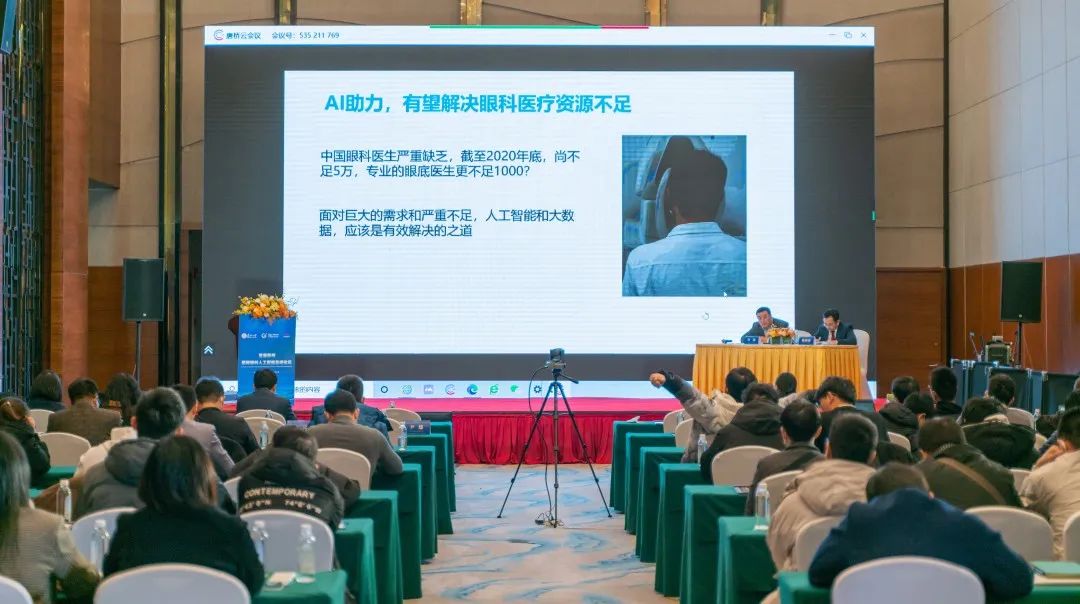
The contradiction of inadequate and unequal allocation of medical resources in China will exist for a long time, and AI has enormous development potential in empowering grassroots ophthalmology. Director Yan Wentao from the Eye and Vision Institute of Wenzhou Medical University presented a report on “5G + Advanced Ophthalmic AI Opens a New Chapter in Ophthalmology Smart Healthcare”, which combined with the practice of Wenzhou Eye and Vision Hospital, introduced the successful experience of utilizing 5G and advanced ophthalmic AI technology to promote the radiation of high-quality medical resources to grassroots and remote areas. Director Chen Jili from Shibei Hospital of Jing’an District in Shanghai presented a report on “Dual-level Artificial Intelligence Jump to Improve Community Diabetic Retinopathy Screening”, which compared the diabetic retinopathy screening using only fundus color photographs and the screening using fundus color photographs and OCT dual-modalities, illustrating that multi-modal ophthalmic AI has a promising application prospect in ophthalmic screening.
As the organizer of this forum, Professor Chen Xinjian, the founder of Big Vision Medical Technology, shared the research results of Big Vision Medical Technology in the field of AI diagnosis of ophthalmic OCT images. The fully automatic AI OCT independently developed by Big Vision Medical Technology has been successfully applied in grassroots ophthalmic hospitals after more than a year of promotion. The ophthalmic OCT image-assisted diagnosis software MIAS 3000 has initiated detection and certification work for three types of medical device registration certificates, and is expected to become the world’s first ophthalmic OCT image-assisted diagnosis system with approved registration certificate for three types of medical devices.

Judging from the messages left by the audience in the live discussion area, the final session of the conference, the roundtable discussion on “The Present and Future of Ophthalmic Artificial Intelligence,” was highly anticipated. Two representatives from investment institutions, Zhou Zhongqiang, head of Suzhou High-Tech Venture Capital JinGu Fund, and Yang Kun, vice president of Origin Star Capital Investment, along with Dr. Yalin Zheng, Professor Yuan Jin, Professor Chen Haoyu, and Professor Chen Xinjian, had an insightful and forward-looking discussion on the technical frontiers, business models, and future market development prospects of ophthalmic AI. They presented a rich intellectual feast for everyone.
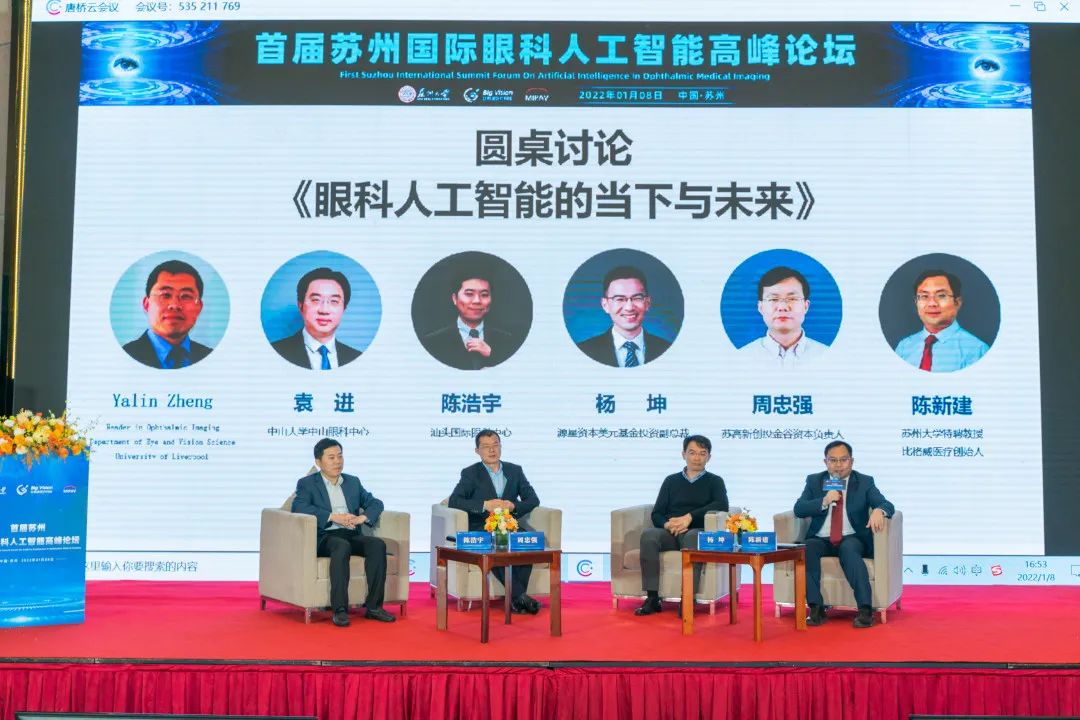
The one-day International Summit on Ophthalmic Artificial Intelligence has come to a close, and the participating experts and scholars were left wanting more. After the forum ended, Professor Xu Xun announced that the National Clinical Research Center for Eye Diseases will co-host the 2nd International Summit on Ophthalmic Artificial Intelligence. Let us look forward to an even more exciting 2nd International Summit on Ophthalmic Artificial Intelligence.

The video replay of this forum will be released one week later. Please stay tuned.
Thank you for your strong support of Eyepro’s live streaming throughout the event.

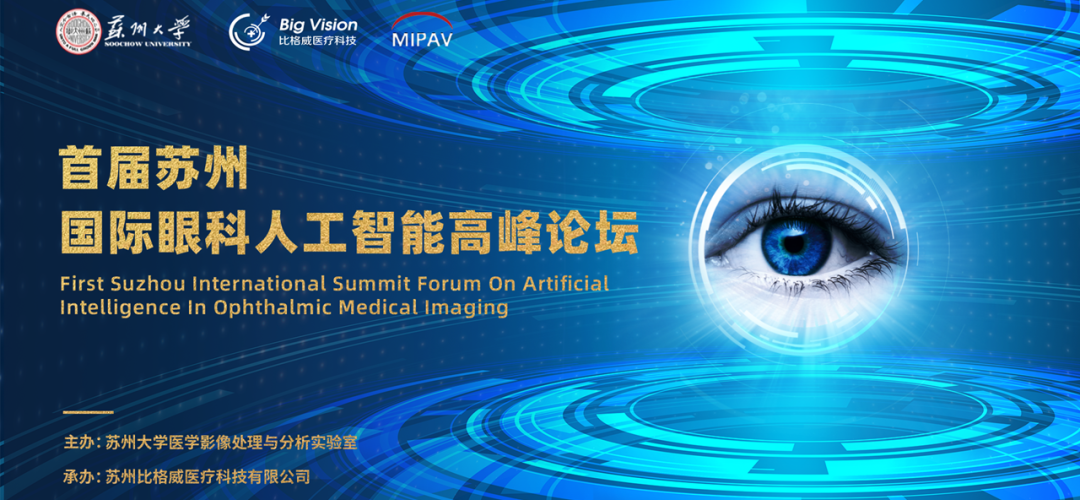
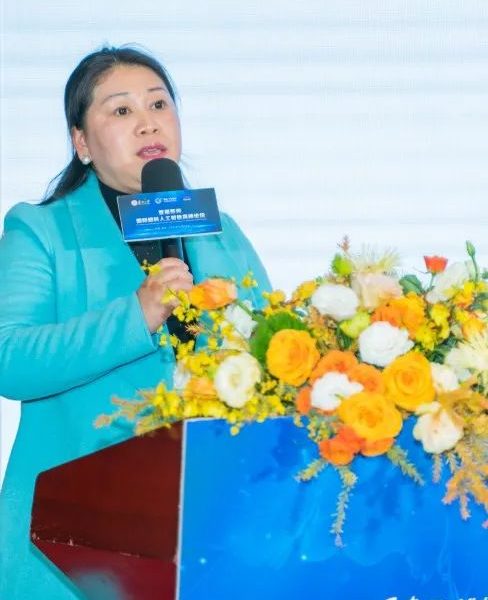
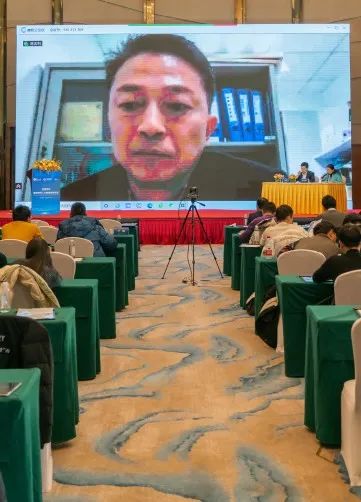



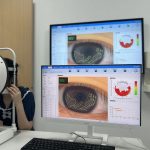



No comments yet.